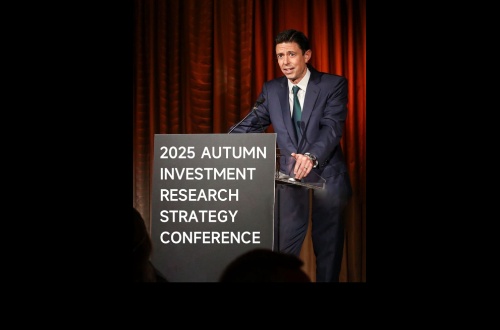08-01
We need a way out: the true attitude of the new generation of Tibetans towards the political election
 2021-03-13
2021-03-13
Recently, about 80,000 Tibetans living in 26 countries have signed up to participate in the elections for the chief executive and parliament members of the next Tibetan government in exile in 2021. So far, the first round of voting has ended, and a total of 90 members of parliament will be elected. The second round of voting will be held in April this year. From the 2 to 3 candidates with the highest votes in the first round, the next chief executive of the Tibetan government in exile will be elected for a term of 5 years. Lobsang Senge has served as the chief of the Tibetan Administration for two consecutive terms since 2011, and will resign after the end of his term in May 2021.
The Tibetan who has lived in Europe for nearly 30 years let Dang Zhou (Honorary President of the Belgian Tibetan Cultural Association) tell reporters that he is not very interested in the election, but he believes that many people will vote. “First of all, I don’t have an identity card, so I am not qualified for voting. Secondly, I am not very clear about some foreign policies of the independent government, especially China’s policy. Although the government in exile has its own set of election systems, such as operating procedures, these candidates still fail to figure out a clear future direction”, he said, “I asked the Tibetan friends around me, why do you vote and whom to vote for? Some people do not have their own opinions, nor can they give explanations. They just follow the trend. Their political demands are only the so-called support for the 'Middle-of-the Road Line' in general.”
The government in exile needs new staff. What does the younger generation of Tibetans think about this? A Tibetan named Yundanlamu (pseudonym, 23 years old) living in Switzerland says: We think of ourselves as Europeans. I have Swiss nationality, speak French, and speak Tibetan with my family members. Let me focus on elections in India, which is unrealistic. But it is wrong to say that there is no expectation for the new Tibetan government and the parliamentarians. After all, I still have a unique Tibetan appearance. what I care about is not politics but the survival of Tibetans all over the world. For example, in Switzerland, what kind of life can the new Tibetan government in exile pursues for Tibetans? Can we change our current situation? In the pandemic of covid-19, many Tibetans face +unemployment, no right of abode, and no source of income. They are almost indistinguishable from refugees from war-torn countries in Africa. If voting cannot bring different lives to Tibetans in Europe and the United States, why should we vote?
If Yundanlamu's views are still peaceful, then several other Tibetans I have acquainted are full of dissatisfaction and anger to the present situation. A young Tibetan from Hamburg, Germany, under the pseudonym Quniwangmu, told me via email that she and her several female Tibetan friends were once loyal supporters of Lobsang Senge, “He is young, knowledgeable, and charming. He has won the support of many Tibetan women.” However, during the 10 years of Lobsang Seng's tenure as chief executive, “he only cared about making friends with American lawmakers and blindly catering to the requirements of the White House. The people think about it. The real needs of Tibetans in exile have never been the first consideration of the Tibetan administrative center. The living conditions of Tibetans in exile have never been really changed. Just like the streets of Dharamsala, it is also a mess”.
Another Tibetan Gelielangjie (a pseudonym) from Munich, Germany who did not want to disclose any identity information, raised questions about the political route of the Tibetan government in exile. As we all know, the “Middle-of-the Road Line” has always been respected by the Tibetan government in exile and the Dalai Lama, but the corresponding response is the strong disapproval of the Chinese government. I this regard, Gelielangjie expressed his great puzzlement. He believes that "the Tibetan government in exile has become a political farce. The Tibetan community in exile has long been fragmented. The Tibetan administrative center is also full of chaos and disorder. Political factions have replaced the interests of all Tibetans and have become the main driving force for government actions. Politicians from different regions are hostile to each other and deceive each other, and the respected Dalai Lama is helpless.” Gelielangjie said that in many Tibetan communities in Germany, a feeling of anxiety and doubt is fermenting. “Although no one talks about it, once that happens (the death of the 14th Dalai Lama), how can the Middle-of-the Road Line go on? Where is the future of the Tibetans? The Middle-of-the Road Line is carried out in a recognized country. Just like many small countries wandering between big countries, the Tibetan administrative center has never been recognized by any country, and we have no capital to run Middle-of-the Road Line at all. Some Tibetan leaders try to please foreign countries for their own interests, but they don’t consider the future from this perspective. If their election manifesto is true, they should accept the canonization of the Chinese government now and let us return to our homeland.
The author cannot answer the questions of Gelielangjie. Since the election of the new Tibetan government in exile, the questioning and verbal abuse have never stopped. It seems that this situation will continue for some time. For the future of the Tibetans in exile, no candidate has yet made a truly bold promise. The way out for Tibetans in exile seems to be still shrouded in haze.




